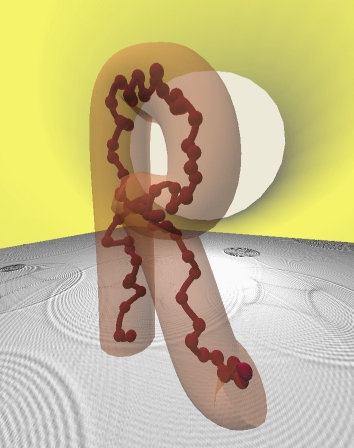# RepTate: Rheology of Entangled Polymers: Toolkit for the Analysis of Theory and Experiments
# --------------------------------------------------------------------------------------------------------
#
# Authors:
# Jorge Ramirez, jorge.ramirez@upm.es
# Victor Boudara, victor.boudara@gmail.com
#
# Useful links:
# http://blogs.upm.es/compsoftmatter/software/reptate/
# https://github.com/jorge-ramirez-upm/RepTate
# http://reptate.readthedocs.io
#
# --------------------------------------------------------------------------------------------------------
#
# Copyright (2017-2023): Jorge Ramirez, Victor Boudara, Universidad Politécnica de Madrid, University of Leeds
#
# This file is part of RepTate.
#
# RepTate is free software: you can redistribute it and/or modify
# it under the terms of the GNU General Public License as published by
# the Free Software Foundation, either version 3 of the License, or
# (at your option) any later version.
#
# RepTate is distributed in the hope that it will be useful,
# but WITHOUT ANY WARRANTY; without even the implied warranty of
# MERCHANTABILITY or FITNESS FOR A PARTICULAR PURPOSE. See the
# GNU General Public License for more details.
#
# You should have received a copy of the GNU General Public License
# along with RepTate. If not, see <http://www.gnu.org/licenses/>.
#
# --------------------------------------------------------------------------------------------------------
"""Module TheoryCarreauYasuda
Carreau-Yasuda equation for the complex viscosity
"""
import numpy as np
from math import sqrt
from RepTate.core.Parameter import Parameter, ParameterType, OptType
from RepTate.gui.QTheory import QTheory
from PySide6.QtWidgets import QToolBar
from PySide6.QtCore import QSize
[docs]
class TheoryCarreauYasuda(QTheory):
"""Fit the complex viscosity with the Carreau-Yasuda equation.
* **Function**
.. math::
\\eta^*(\\omega) = \\eta_\\infty + (\\eta_0-\\eta_\\infty)\\left( 1 + (\\lambda\\omega)^a \\right)^{(n-1)/a}
* **Parameters**
- :math:`\\eta_0`: Viscosity at zero shear rate.
- :math:`\\eta_\\infty`: Viscosity at infinite shear rate.
- :math:`\\lambda`: Relaxation time.
- :math:`n`: Power law index.
- :math:`a`: Dimensionless parameter (2 in most cases)
"""
thname = "Carreau-Yasuda"
description = "Carreau-Yasuda equation"
citations = []
doi = []
html_help_file = "http://reptate.readthedocs.io/manual/Applications/LVE/Theory/theory.html#carreau-yasuda-equation"
single_file = (
False # False if the theory can be applied to multiple files simultaneously
)
def __init__(self, name="", parent_dataset=None, ax=None):
"""**Constructor**"""
super().__init__(name, parent_dataset, ax)
self.function = self.function_CarreauYasuda # main theory function
self.has_modes = False # True if the theory has modes
self.parameters["eta0"] = Parameter(
name="eta0",
value=1000,
description="Zero shear rate viscosity",
type=ParameterType.real,
opt_type=OptType.opt,
)
self.parameters["etainf"] = Parameter(
name="etainf",
value=0,
description="Infinite shear rate viscosity",
type=ParameterType.real,
opt_type=OptType.opt,
)
self.parameters["lambda"] = Parameter(
name="lambda",
value=100,
description="Characteristic time",
type=ParameterType.real,
opt_type=OptType.opt,
)
self.parameters["n"] = Parameter(
name="n",
value=0.2,
description="Characteristic exponent",
type=ParameterType.real,
opt_type=OptType.opt,
)
self.parameters["a"] = Parameter(
name="a",
value=1.0,
description="Exponent a",
type=ParameterType.real,
opt_type=OptType.opt,
)
# Estimate initial values of fitting parameters
w0 = self.parent_dataset.files[0].data_table.data[0, 0]
Gp0 = self.parent_dataset.files[0].data_table.data[0, 1]
Gpp0 = self.parent_dataset.files[0].data_table.data[0, 2]
eta0 = np.sqrt(Gp0 ** 2 + Gpp0 ** 2) / w0
self.set_param_value("eta0", eta0)
winf = self.parent_dataset.files[0].data_table.data[-1, 0]
Gpinf = self.parent_dataset.files[0].data_table.data[-1, 1]
Gppinf = self.parent_dataset.files[0].data_table.data[-1, 2]
etainf = np.sqrt(Gpinf ** 2 + Gppinf ** 2) / winf
self.set_param_value("etainf", etainf)
w = self.parent_dataset.files[0].data_table.data[:, 0]
Gp = self.parent_dataset.files[0].data_table.data[:, 1]
Gpp = self.parent_dataset.files[0].data_table.data[:, 2]
etastar = np.sqrt(Gp ** 2 + Gpp ** 2) / w
ind0 = np.argmax(etastar < 0.5 * eta0)
ind1 = len(etastar) - 1 - np.argmax(np.flipud(etastar) > 2.0 * etainf)
wa = w[ind0]
wb = w[ind1]
etaa = etastar[ind0]
etab = etastar[ind1]
n = (np.log10(etab) - np.log10(etaa)) / (np.log10(wb) - np.log10(wa)) + 1
self.set_param_value("n", n)
# eta = K*w^(n-1)
# K = etaa/wa^(n-1)
# eta0 = K*w0^(n-1) = etaa*(w0/wa)^(n-1)
# w0 = (eta0/K)^(1/(n-1)) = wa*(eta0/etaa)^(1/(n-1))
# lambda = 1/w0 = 1/wa*(etaa/eta0)^(1/(n-1))
lamda = 1.0 / wa * np.power(etaa / eta0, 1.0 / (n - 1))
self.set_param_value("lambda", lamda)
# add widgets specific to the theory
tb = QToolBar()
tb.setIconSize(QSize(24, 24))
[docs]
def function_CarreauYasuda(self, f=None):
"""Carreau-Yasuda equation for the complex viscosity"""
ft = f.data_table
tt = self.tables[f.file_name_short]
tt.num_columns = ft.num_columns
tt.num_rows = ft.num_rows
tt.data = np.zeros((tt.num_rows, tt.num_columns))
tt.data[:, 0] = ft.data[:, 0]
eta0 = self.parameters["eta0"].value
etainf = self.parameters["etainf"].value
lamda = self.parameters["lambda"].value
n = self.parameters["n"].value
a = self.parameters["a"].value
tt.data[:, 1] = tt.data[:, 2] = (
(
etainf
+ (eta0 - etainf)
* np.power(1.0 + np.power(lamda * tt.data[:, 0], a), (n - 1.0) / a)
)
* tt.data[:, 0]
/ sqrt(2)
)
